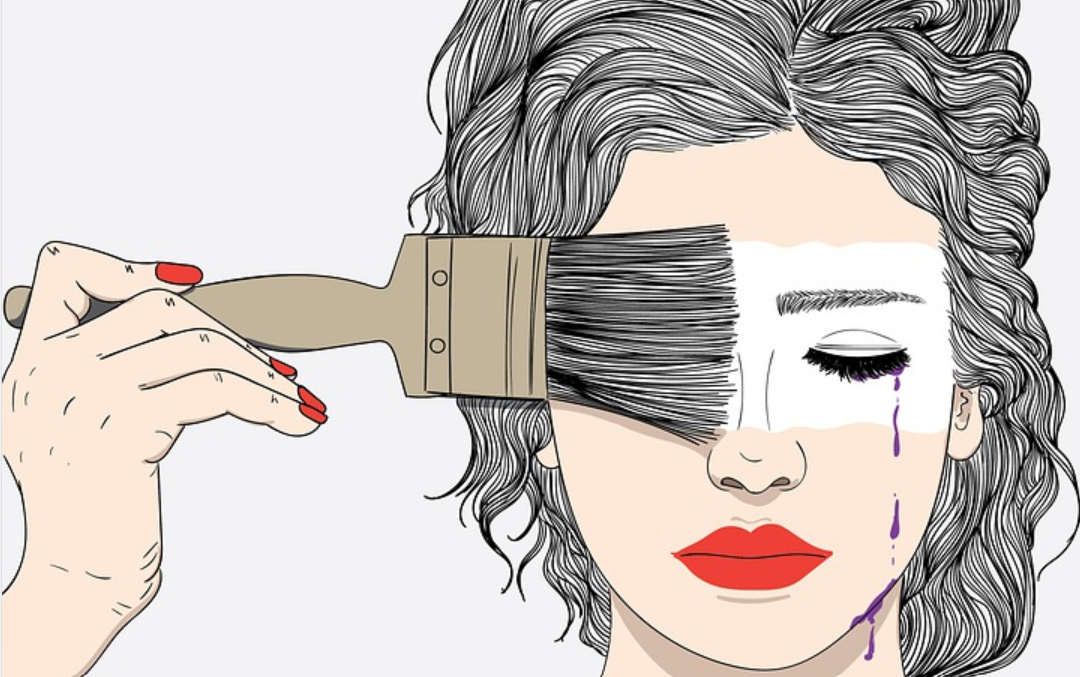
There is a lot of noise in a sh*tstorm.
Emotions run high and the situation becomes highly charged. Everything feels personal. Sh*tstorms happen everywhere.
There is no perfect place where people reside free from distress. Some are quick to say we attract this into our lives. I am more inclined to say that I accept them as part of life’s cycles and lessons. How we resolve these problems can deeply impact our own and other people’s levels of distress, health, and well-being.
I have heard many highly charged accounts of sh*t storms. I have had my own in my personal experiences. There is always a shared experience of difficulties, although they vary to some degree between individuals.
They include and are not limited to:
>> “I hate my job. My boss is a narcissistic creep who favors certain staff. I feel unappreciated and undervalued.”
>> “I love my wife so much, but I feel I can never please her. I do not want my marriage to end but we are merely together for the sake of the kids. There is no warmth or closeness anymore.”
>> “I’m always overlooked and never given the same opportunities others are given. I might as well just roll over and play dead because I am sure nobody will notice me.”
>> “I always leave that interaction feeling yuck about myself. She always seems to want to show me she is better than me or doing better than me. Why do I keep this friendship going?”
>> “My daughter talks to me so disrespectfully and always finds a way to hurt me. You would drink too if you had a daughter like I do.”
>> “It’s too late in my life to change anything. I might as well just keep doing what I have always been doing. These young ones would not know a tough life even if it slapped them across their face. My life was never easy and I’m too old now to do a damn thing about it.”
>> “Yes, I know I work over the weekends and late into the night, but what can I do because if I do not, my work won’t get done and they aren’t going to employ someone else to do the job.”
We can spend years and even decades going around in a distressing cycle of events and never really outgrow any of the distress. Sometimes we wish that if we keep complaining about our situations, someone will listen and then change their behavior or the situation and then we can be “okay” and we will feel better.
Really? Do we really have no choices?
When we think we have no choices, we are creating a sense of helplessness that only serves to increase our levels of distress. The thing about accepting the choices we do have is that they stop the cycle of blaming and put the responsibility in our hands. We might say we like this, but we find more comfort blaming because there is no effort or change required from us to do the latter. Change is daunting for all of us.
There are four choices for solving any problem according to Dialectical Behavioural Therapy (DBT). While DBT is used for the treatment of Borderline Personality Disorder, individuals that have been abused, invalidated, and mistreated by those incredibly significant to them, the choices for moving forward remain the same.
They might not be the right or the easiest choices we can make. Other treatment modalities, such as Acceptance and Commitment Therapy (ACT) emphasize the same process of accountability and choice.
We all have four choices that we can make to solve our problems within our sh*t storms:
1. Solve the Problem
We can change how we deal with the problem. This can include learning more effective interpersonal skills to get what we want and need, we can manage and regulate our emotions, and we can find a balanced approach to life.
This could mean developing a wise and paced response to problems as they present rather than the cycle of provoking conflict and “getting off” on the highly charged nature of conflict. When we really want to change how we deal with a problem, we demonstrate it in our commitment and our actions and not just our words. Words come way too easy for some of us. We know the right things to say to appear mindful.
Another mindful solution to solving the problem is to leave the situation for good. Leaving is not cowardliness. It takes courage and bravery to leave.
When we realize that staying does not change our situation, or that others will not change regardless of all our efforts, or most of all, if staying will turn us into poisonous and resentful individuals, then leaving is for the highest good.
There is the choice to leave even when we feel angry and disgruntled. We need to own the choice to leave. We might at times threaten to leave to gain power and control and get our needs met. This is not a choice to leave.
We choose to leave because we cannot grow if we remain.
We leave when our values are not aligned.
We leave when we recognize that the situation will not change.
2. Feel Better About the Problem
These are things we can do to feel less distressed about our problems. Some people decide to remain in relationships and/or work situations and they learn to feel less distressed by their circumstances.
For example, some people decide to stay in their jobs and focus on the really satisfying options that it affords them. They find that there are more pros to staying than cons. Some decide that they can continue to live with their partners as friends and feel a sense of relief knowing that the relationship has ended but the companionship remains.
Sometimes this might include, focusing our energy on not changing the problem situation but rather choosing our responses and reactions to it. If we are experiencing loneliness in our lives, we can accept that in this moment we are alone, but it does not need to stop us from doing things in our lives that can be enjoyable. We do not need to wait for someone to come along and do things with us or for us. We can remind ourselves that being alone does not mean we are unworthy or unlovable but rather that making new friends can be difficult. We can do a lot to reduce our suffering if the situation does not change.
3. Tolerate the Problem
We need to bear in mind that sometimes we might not be able to solve a problem immediately, and we will certainly feel distressed by this. The more complex the situation, the longer it might take for us to feel that a resolution is clear. There are simply no quick fixes. In situations like these, we still have a choice to reduce our own suffering.
It is in times of intense distress that we can practice radical acceptance, mindfulness, self-care practices, trust, connection with others, reaching out for support, and wisdom to do what we need to get through our suffering with less detachment and avoidance. Tolerating that life happens and problems arise that might need time to find a resolution does not mean that we must be unwell until a resolution has been found. We need to be psychologically flexible and focus on our well-being and not let it deteriorate during these times.
4. Stay Miserable
We can also choose to do nothing and stay miserable. It is a choice. We can also choose to stay and make the situation worse. This is a choice too.
A lot of us can sometimes think we have no choices, so we self-destruct and impact others around us. Often, we impact those closest to us. We do not change. We either become passive or we simply do mindless things that do nothing to solve the problem except make it worse.
Complaining, being divisive, sh*t stirring, gossiping, engaging in detached self-soothing, chronically worrying, backstabbing are all ways in which we make the problem worse and, more importantly, make our health and well-being, and that of those around us, suffer.
Imagine if we paused and said, “I am going to choose to not be effective and make my sh*t storm worse.” It might be a dose of reality we have been long needing to realize our part in our problems.
Having choices for me has been liberating when facing some unpleasant and distressing situations. It has not meant that making the choice is easy or that everything is smooth sailing after the choice is made.
When we have a good sense of values that guide our lives and depending on the stages in our own recovery journey, the way we choose from the four options will change. What changes is that we have time to consider and reflect on the choices we make. We pause, we do not react to our distress, and we don’t do things impulsively.
We say, “I choose.” We get into the driver’s seat of our own car.
We cannot say we just did this, or someone did that to me. We are no longer victims of our circumstances even if the situations are unfair. Even if we did not cause the problem, it is still our life and our responsibility to move forward. It is also living wisely through all of life’s challenges.
The moment we focus on how life is, rather than how it should be, the less agonizing it will be. The less we suffer. We are not foolish for staying or leaving. We are choosing how we live, how we stay, and how we leave.
May we choose the paths that always keep us being human with genuineness and authenticity, but most of all, contented beings, taking responsibility and building a life worth living.
~
Read next: 7 Ways to Stop our Fear of Abandonment from Turning us into Emotional Vampires.


 Share on bsky
Share on bsky




Read 71 comments and reply